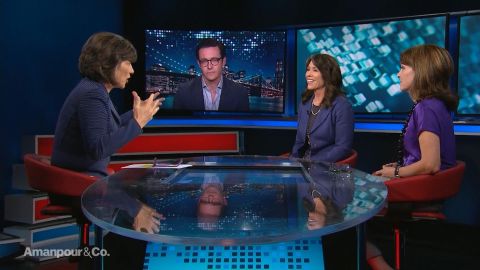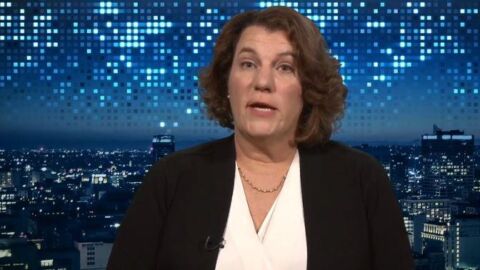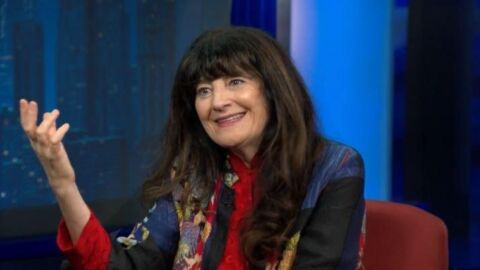Read Transcript EXPAND
CHRISTIANE AMANPOUR: What do you make, Kori, given that this is a Republican administration, of this idea of reinventing the wheel in terms of promoting economy first, economic investment to the Palestinians as a first step?
KORI SCHAKE, DEPUTY DIRECTOR-GENERAL, IISS: I think it’s unlikely to supplant the desire for status and political stature that the Palestinians justifiably want. And I also think it’s very unlikely to be taken seriously given that the Trump administration had cut off humanitarian assistance to the Palestinians. So, there’s not an assumption of good faith on the part of the United States as a mediator at this point.
AMANPOUR: So, that is really important, Karin.
KARIN VON HIPPEL, DIRECTOR-GENERAL, ROYAL UNITED SERVICES INSTITUTE: Yes.
AMANPOUR: The whole idea of the honest broker, the assumption of good faith, the steps that Kori was saying, whether it’s, you know, moving the embassy to Jerusalem, cutting off humanitarian aid, closing down representative offices that represent the Palestinians —
HIPPEL: Right.
AMANPOUR: — in the United States. What happens when the United States loses that decades-long, you know, moniker of honest broker?
HIPPEL: Well, you know, they have lost it. And this peace plan has been done — has been shrouded in such secrecy, no one has had sight of it, and there are a number of experts that really could have helped. Jared Kushner doesn’t have the experience. He’s working with one or two others that know the region but seem to have more of an agenda. And so, they aren’t seen as honest brokers and I don’t think anyone anticipates that it will succeed. Of course, we all want it to succeed, everyone in the region does, but I think most of us, you know, really think it will be very biased in Israel’s favor and not at all a balanced deal.
AMANPOUR: Mark, I don’t know whether you want to weigh in on this issue because you have been, you know, really examining the U.S. and its promotion of democracy abroad and its promotion of values abroad. I mean, how do you see this particular episode of trying to restart the peace process on these somewhat uneven terms at the beginning, playing into this debate?
MARK HANNAH, SENIOR FELLOW, THE EURASIA GROUP FOUNDATION: Well, I think, unfortunately, to some extent, it’s typical of American foreign policy and that it’s looking at the world through our values, it’s thinking that, “Oh, if only the Palestinians would pick themselves up by the boot straps,” and it’s almost like Jared Kushner is over there peddling, you know, the protestant ethic and the spirit of capitalism as the solution to the Palestinians’ problems. So, we’re taking an American lens and looking at the values that we so cherish like economic opportunity and self-reliance and things like that and bringing that to this debate where, to Kori’s really smart point, the Palestinians just want dignity, just want recognition, just want sovereignty, and to stop the Israeli occupation. So, I think there is an ignorance that’s being reflected.
About This Episode EXPAND
Christiane Amanpour hosts a round-table with Kori Schake, Karin von Hippel and Mark Hannah to discuss the U.S.’s attempt at peace in the Middle East. Christiane also speaks with Susan Dynarski about the burden of student debt affecting Americans nationwide. Walter Isaacson speaks with Ruth Reichl about her life-long passion for food.
LEARN MORE


